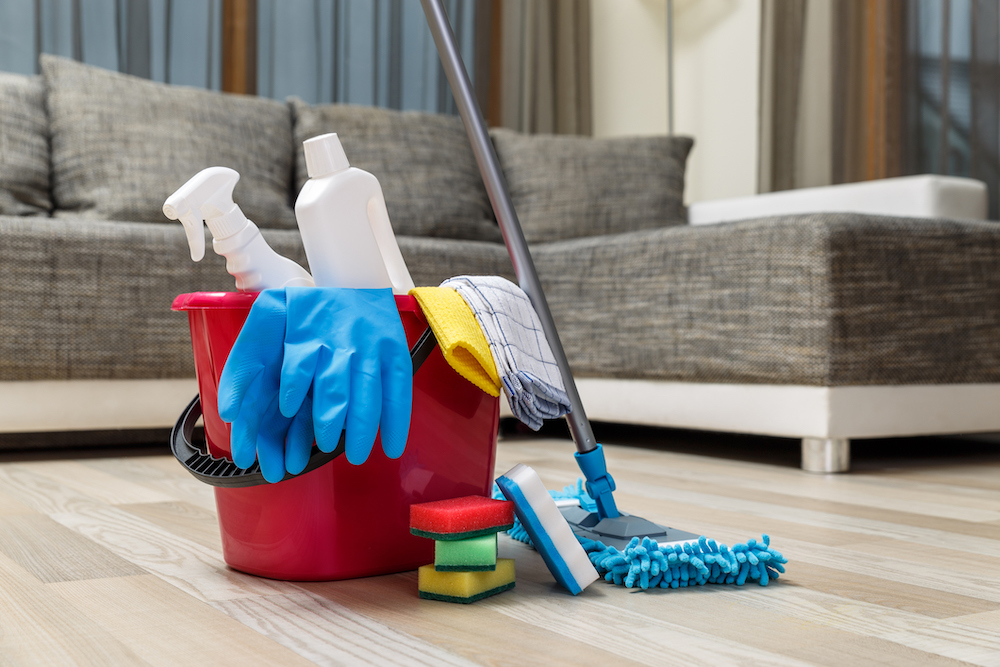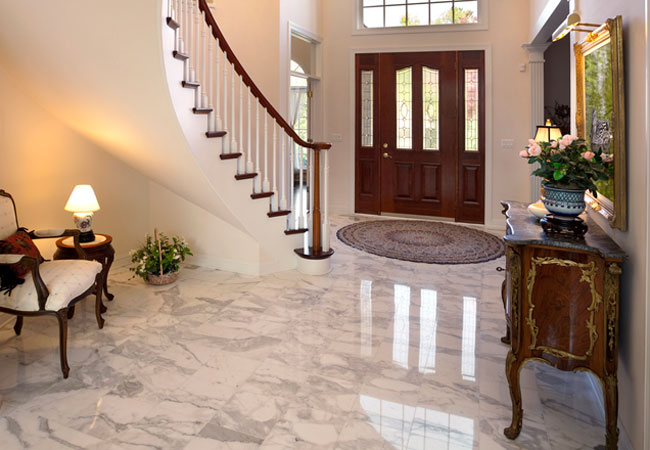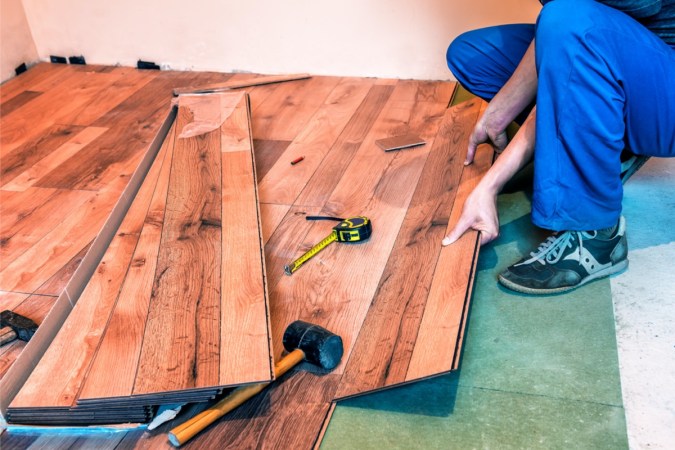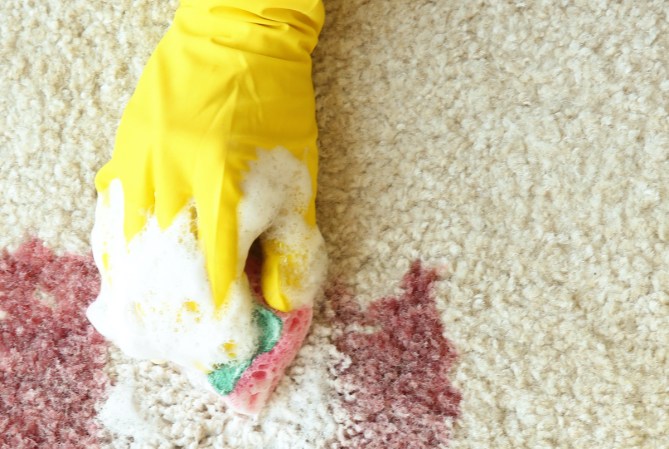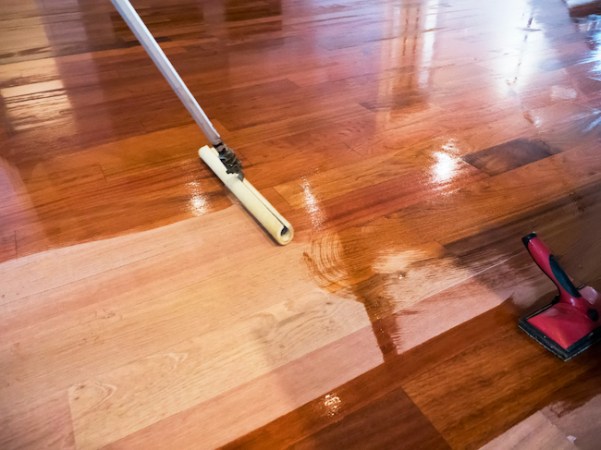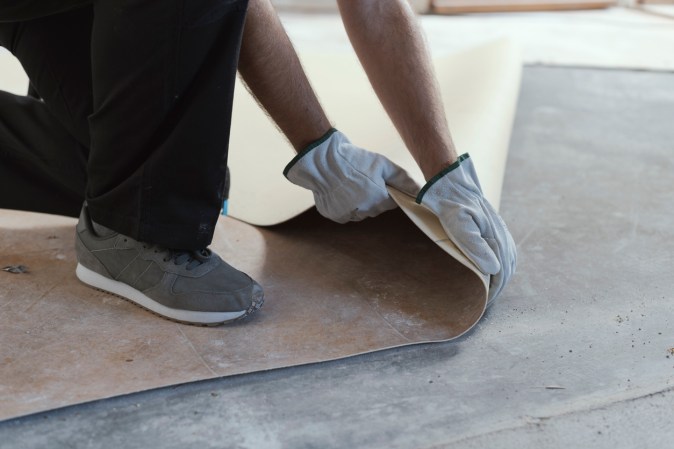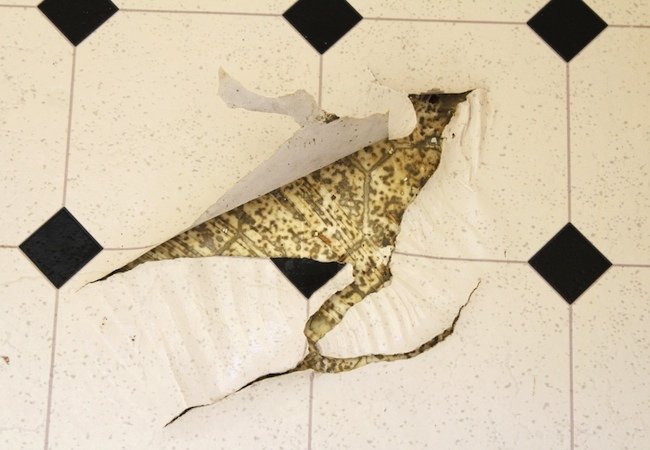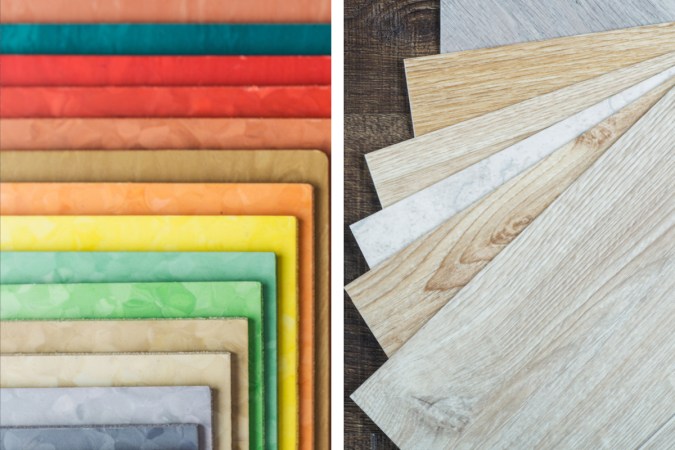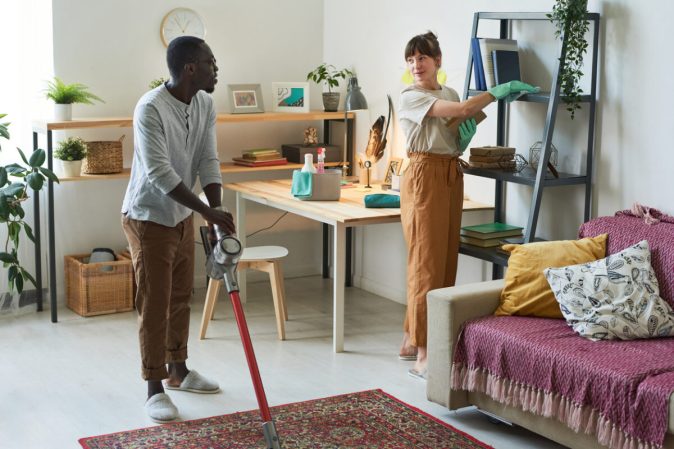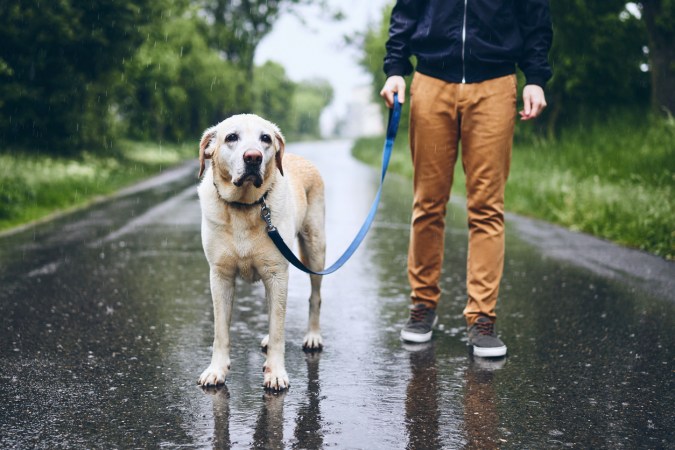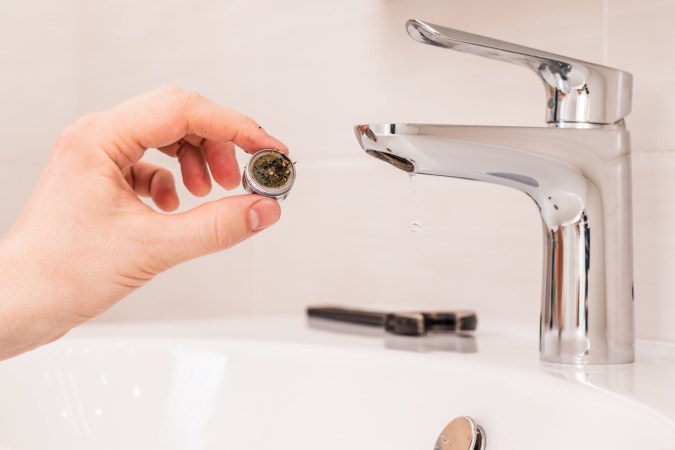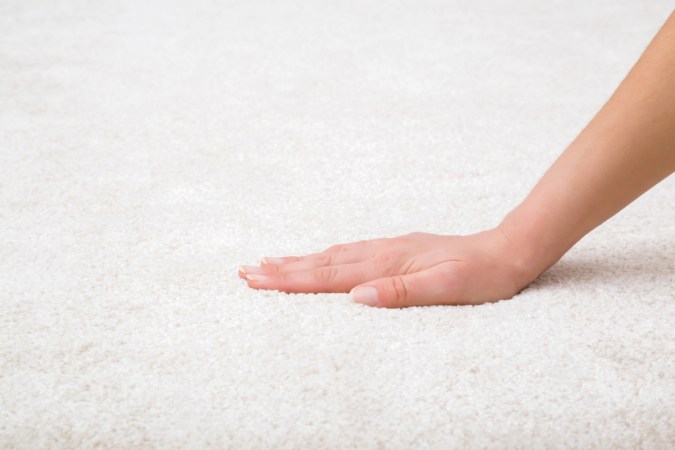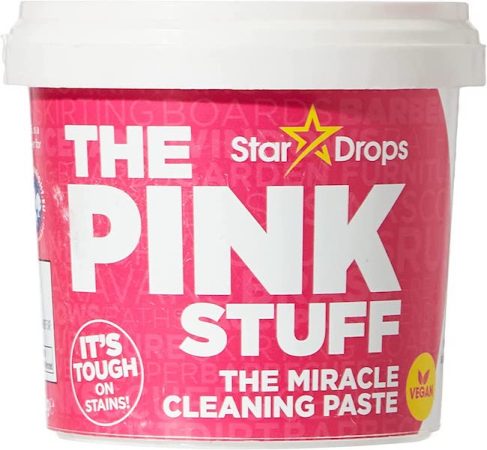We may earn revenue from the products available on this page and participate in affiliate programs. Learn More ›
Vinyl tile and laminate flooring is attractive, durable, and long-lasting, even under a home’s highest-traffic conditions, but the product is certainly not indestructible. Fortunately, cleaning vinyl flooring is a fairly straightforward and inexpensive process, and with proper care, it’s easy to maintain the material’s eye-catching appearance.
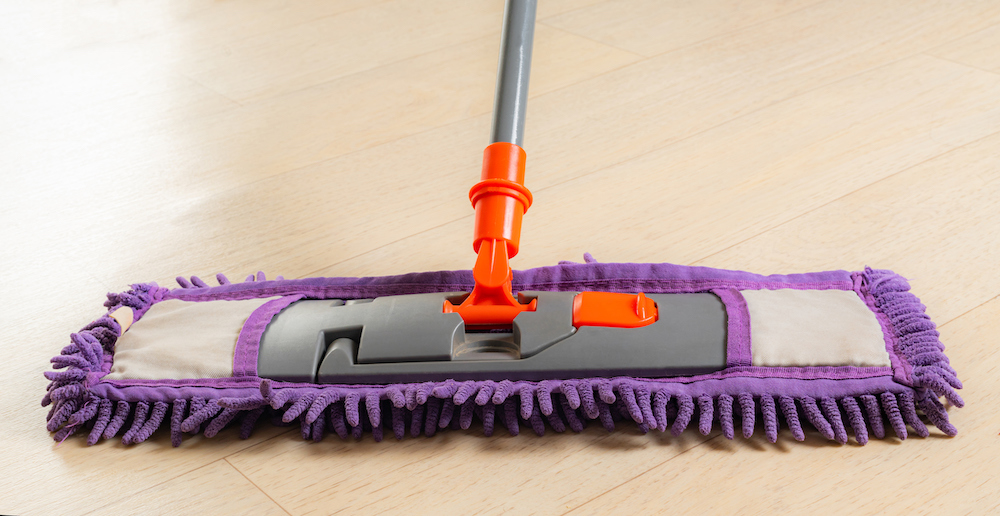
How to Keep Vinyl Floors Clean
When it comes to cleaning vinyl flooring, you can’t go wrong with plain water and a sponge mop! Always wipe up spills as soon as possible, and mop frequently with plain water. For more intensive cleaning, here are a few tips and techniques:
- Always vacuum or dry mop the floor to remove surface dirt, dust, and hair before moving on to wet cleaning; make sure you get under furniture, in corners, and along baseboards.
- One of the best cleansers for vinyl flooring is apple cider vinegar. The acidity in the vinegar helps remove dirt and grime without leaving a buildup of soap or wax. Simply mix one cup of cider vinegar with a gallon of hot water and use a damp mop to clean, rinsing the mop frequently with hot water. Substitute white vinegar for cider vinegar if you want to disinfect as you clean. If your floor is especially dirty, try adding a few drops of liquid dishwashing soap to the mixture before mopping once with the soap mixture, a second time with vinegar and water. To add shine to your vinyl floor, add a few drops of baby oil to the vinegar and water solution.
- For stubborn scuffs, try putting some WD-40 lubricant or jojoba oil on a towel and rub the area until the scuffs disappear. Clean thoroughly with the vinegar and water solution to remove any traces of lubrication.
- For food stains from grape juice, mustard, ketchup, tomato sauce and the like, make a paste of baking soda and water and gently rub the stain until it disappears. Clean thoroughly to remove any traces of baking soda.
- A soft, nylon-bristle brush can help remove many types of stains, especially when used with common household solvents. Rubbing alcohol can be used to remove lipstick, hair dye, and ink stains. Use mineral spirits to remove crayon, paint, and marker stains. Use a nail polish remover that contains acetone to remove nail polish stains.
RELATED: The Best Vinyl Plank Flooring Brands
Commercial Cleaners to Use on Vinyl Floors
Some commercial cleaners are specially designed for vinyl floors. These include Pine-Sol Multi-Surface Cleaner, Pledge Multisurface Floor Cleaner, and Armstrong’s Once ‘n Done No-Rinse Floor Cleaner.
How to Prevent Damage to Vinyl Flooring
The first step is to keeping a vinyl floor clean is to try minimizing dirt, stains, and abrasions before they occur. Over time, dirt and dust can wear down and degrade the finish on any type of flooring, including vinyl tile or laminate; therefore it is always a good idea to situate a good-quality doormat or area rug in front of doorways so that grit and grime don’t migrate into the house.
Another helpful hint is to use a sheet of plywood or paneling any time you need to move furniture across the floor; this will help prevent scuff marks or tears in the vinyl. You also may want to use vinyl coasters under the feet and legs of your furniture to safeguard against permanent indentations.
RELATED: The Pros and Cons of Vinyl Flooring
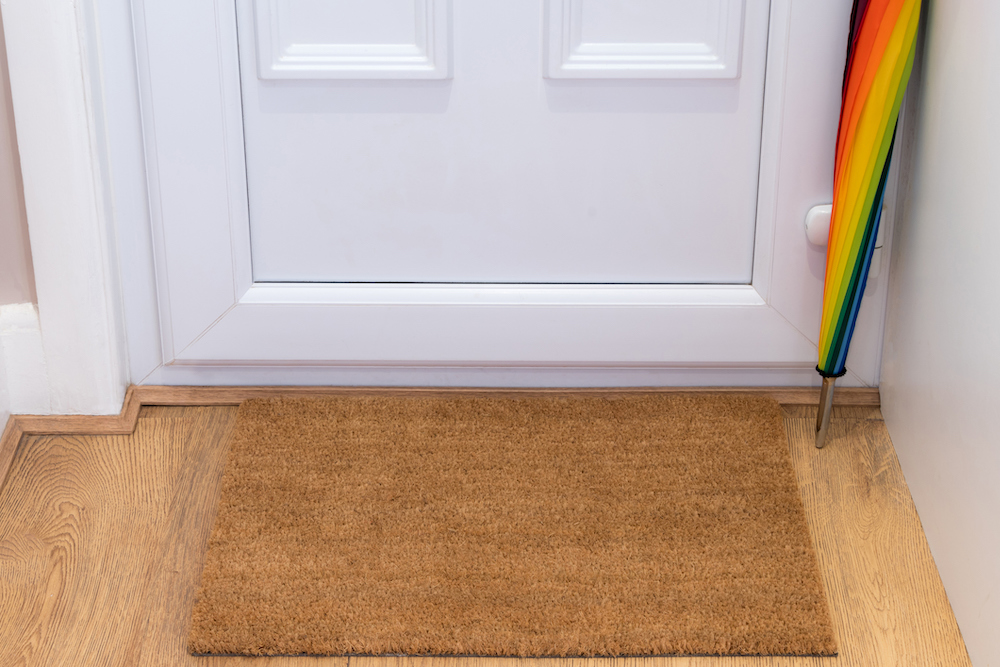
How Not to Clean Vinyl Flooring
There are a few areas of caution and products to avoid when it comes to cleaning vinyl flooring:
- When vacuuming vinyl, do not use a “beater bar” attachment; this can damage the flooring surface.
- Never use highly abrasive scrubbers or steel wool.
- Do not use detergents, abrasive cleaners, or “mop and shine” products, because these can leave a dull film on the floor.
- Do not use paste wax or solvent-based polishes.
- Do not use ammonia or ammonia-based cleaning solutions on vinyl flooring; these can break down the material and cause cracks in the flooring.
With just a little time and elbow grease, vinyl flooring can take years of use and abuse and still look lovely.

